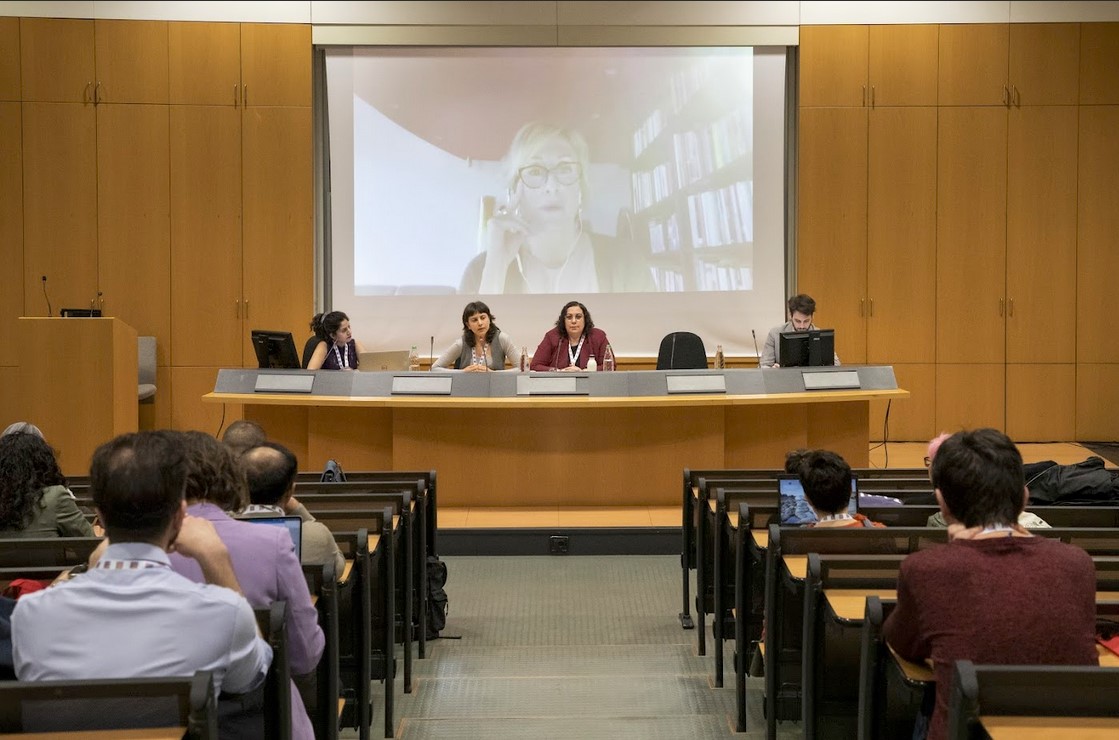MCAA Annual Conference 2024 - Empowering Citizen Science: Discover insider tips and techniques
Newsletter

Celebrate 10 years of the MCAA in democratising science through community engagement. Through the European Citizen Science project, be part of the movement towards effective societal progress, where citizen science paves the way for a brighter, more inclusive future.
The Marie Curie Alumni Association (MCAA) marked its 10th anniversary with a series of events emphasising its commitment to democratising science and community involvement in research. The celebration took place during the 2024 annual conference from March 14th to 16th in Milan, Italy.
Collaborating with partners from the EU-funded European Citizen Science (ECS) Project, including the Learning Planet Institute and Paris Cité University (LPI/UP Cité), the MCAA organised an enlightening kick-off satellite event on March 14th titled 'Public Engagement and Participatory Research: The Whys and Hows of implementing Citizen Science in your Research.'
Enriched by the expertise and personal insights of three distinguished experts in the field Antonella Radicchi, Maya Fedeli and Andrea Sforzi, the hybrid workshop welcomed both citizens and researchers to delve into the multifaceted realm of public engagement and participatory research within the scientific ethos, offering diverse perspectives and invaluable insights.
Antonella initiated the session by exploring the evolution of citizen science funding in EU programs, defining key terms, and outlining the 10 principles established by the European Citizen Science Association (ECSA). She categorised citizen science projects into five distinct types, emphasising its versatility as an umbrella term for various participatory research practices.
Andrea, Director of the Maremma Natural History Museum and President of Citizen Science Italia, provided valuable insights into the museum's approach to citizen science. He underscored the historical significance of museums in advancing citizen science and their pivotal role in its institutional establishment across Europe. Additionally, he traced the formation of ECSA and outlined the development of a strategic framework for citizen science in Italy.
Maya offered a compelling perspective on citizen science as a methodology for bridging the gap between science and citizens, fostering deeper engagement from both groups. Highlighting the transformative nature of citizen science, she emphasised its ability to empower citizens as researchers while enhancing researchers' sense of citizenship. Drawing from her own experiences, she shared insights from her PhD research to her current role as a science communicator and research manager at UniSR, Milan. She also discussed UniSR's initiatives to promote citizen science among its PhD students and addressed common challenges and quality control measures. Maya emphasised that citizen science is not a one-size-fits-all approach to research, underscoring the need for flexibility and adaptability.
Overall, the workshop provided a comprehensive exploration of citizen science, shedding light on its diverse applications and transformative potential in research and public engagement.
On March 15th, a panel discussion titled 'Stakeholders within Citizen Science: Don’t forget the Citizens' further explored the theme of inclusivity in research where speakers Antonella Radicchi, Maya Fedeli, and Cléa Montanari discussed the significance of amplifying equity, diversity and inclusion (EDI) within the research process. Cléa underscored the challenges faced by young researchers to address complex issues surrounding EDI within their research like limited time, resources, approval by their principal investigators, and inherent societal biases. However, as pointed out by Antonella, diverse applications and tools such as Quintuple or 5-helix model and marginalised voices framework can help mitigate these and instead promote inclusivity and diversity within citizen science data representation while also reducing social biases.
Furthermore, beyond selecting the appropriate research methodology, the manner in which we engage with citizens profoundly influences the outcomes of our research endeavours. As Maya eloquently articulated, the cornerstone of effective communication lies in the art of attentive listening and empathetic understanding.
The panel emphasised that citizen science presents a unique opportunity for individuals to immerse themselves in the realm of research, while also allowing researchers to engage with a broader community. Yet, akin to all research domains, attaining and defining ‘success’ in citizen science projects is intricate. Hence, it is prudent to not solely fixate on quantitative metrics but to also embrace qualitative insights from diverse viewpoints.
In conclusion, the events garnered enthusiastic feedback, commending their informative content, inspirational speakers, and diverse viewpoints. Attendees proposed adding sessions covering successful citizen science projects, GDPR considerations, and social activities for future events. Overall, participants expressed increased awareness and motivation to incorporate citizen science methodologies into their research endeavours, marking the sessions a resounding success.
I thank the MCAA team formed by Ruben Riosa and Mostafa Moonir Shawrav, and the LPI/ UPCite partners Cléa Montanari and Muki Haklay in their support in organising the above-mentioned events.
Pooja Khurana
Pooja Khurana linkedin
MCAA Newsletter Editorial Board
Project Officer
European Citizen Science (ECS) Project
pooja.khurana@mariecuriealumni.eu
@PK_ActNow